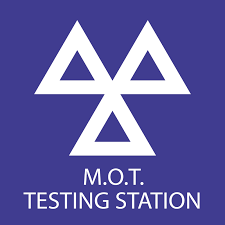Any cars, motorcycles and vans that require a MOT from 30 March 2020 have been given a six-month exemption from testing, due to the ongoing coronavirus pandemic. This is to enable vehicle owners to continue to travel to work where they cannot work from home, and to shop for necessities. The only stipulation is that vehicles must be kept in a roadworthy condition, with the possibility of prosecution for those found driving unsafe vehicles. Dealerships and garages may remain open for essential repairs. MOTs due before 30 March 2020 that have not been tested have not been extended by the Government and therefore you are obliged to get an MOT test carried out, or not use the car. However, if your vehicle has a current MOT or a 6-month extended MOT you may want to carry out the following checks to ensure ongoing roadworthiness, so the NFDA has compiled a key list that will assist.
Sue Robinson, Director of the National Franchised Dealers Association (NFDA) explains, “As many people are self-isolating or avoiding all non-essential travel, vehicles could potentially be unused for weeks, if not months. This means that we are not monitoring the condition of our vehicles closely, meaning there could be missed faults that could prove dangerous when they are used. For those who are making journeys, these are likely to be short, irregular visits to supermarkets and pharmacies, which can also have an impact on your vehicle.
“MOT appointments are still available at garages and dealerships that are still open, as a method of ensuring roadworthiness. However, if this is not possible due to self-isolating, being a vulnerable individual or having someone in your household that is vulnerable, or for any other reason, then the following advice is essential for maintaining your vehicle.
Tyres
Tyres will deflate over time, so checking the tyre pressures regularly will help alleviate this. Handheld pressure gauges and inflators are available for use at home, but if you do not have access to these then using an air compressor at your nearest petrol station is the next best option. Ensure that you maintain 2 metres of distance from others and use protective gloves when operating the machine. Check tyre pressure cold and on level ground to ensure an accurate reading.
Tread depth is something that should be checked regularly, as it impacts the only part of the car that connects with the road. For cars, light vans and trailers, the tyre tread depth should be a minimum of 1.6 millimetres (mm), with many organisations recommending that the depth does not go below 3mm.
Lights & Indicators
It is vital that all light bulbs are operating correctly A simple walk-round check with lights and indicators on will indicate they are operative, but you will need someone to assist you checking the brake lights by depressing the brake pedal while you are outside. Light bulbs are available at most dealerships, garages and parts shops, although the fitting of bulbs can range from simple to very complex so assistance of a professional in some cases may be needed. Advice can always be sought if you are a member of the AA or RAC.
Fluid Levels
As it may have been some time since key fluid levels have been checked, looking at these are vital to ensure your vehicle is safe to run. Ensure that your car is on level ground and the engine is cold when checking fluid levels.
Engine oil levels on most vehicles can be checked by identifying your dipstick under the bonnet. Remove this, wipe clean with a cloth or paper towel, replace, and remove once again. Check that the oil level is between the markings at the bottom of the dipstick. If the oil level is low, fill the engine with the correct grade of oil detailed by your manufacturer.
Windscreens and mirrors
Ensure that windscreen washer levels are within the recommended capacity and top up with diluted screen wash, or just water through the summer months. Be sure to check any holes in the washer jets are clear – these can be unblocked using a pin.
Windscreen blades must also be checked for wear, on both the front and rear screens. Clean them of any dirt, leaves, insects etc that may have accumulated over the time your vehicle has been stationary.
Robinson concluded, “These tips are the minimum of what needs to be done in order to maintain your vehicle from home in these uncertain times.”










